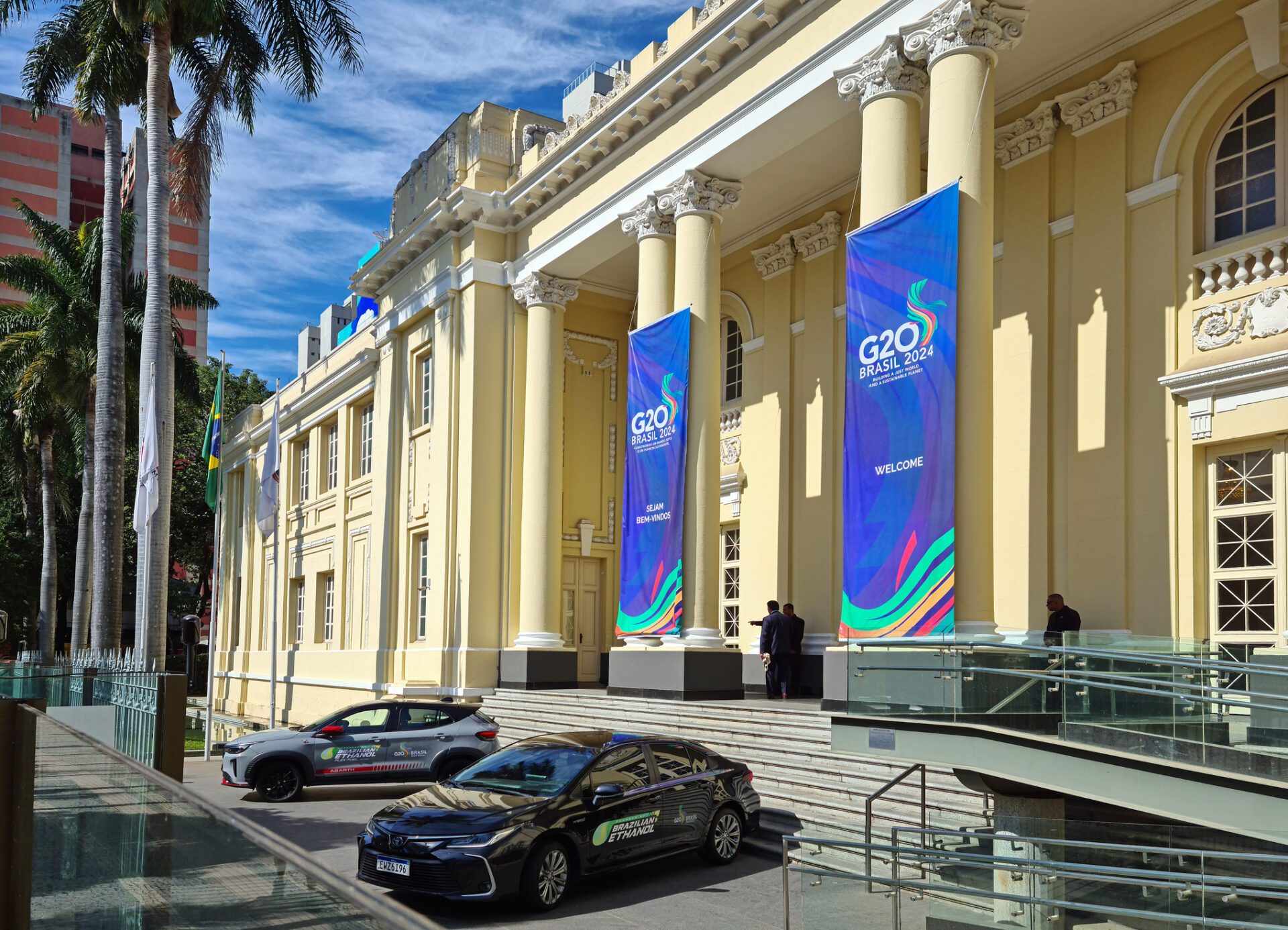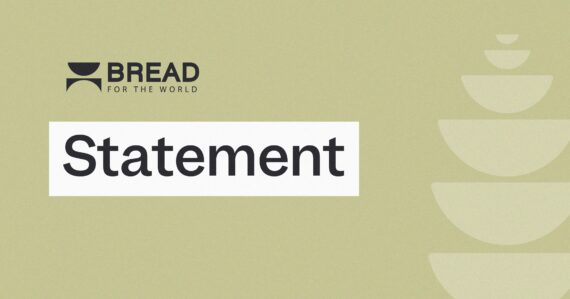In 2015, nearly all of the world’s countries adopted the 17 Sustainable Development Goals (SDGs), with their important reminder to “leave no one behind.”
Bread for the World’s value of human flourishing reflects these interconnected goals. Our top priority focus is SDG 2: ending hunger and malnutrition in all its forms by 2030. But with only five years remaining until the 2030 deadline, researchers project that if present trends continue, the goal will not be reached. Even if the world cannot speed up progress and reach the goal by 2030, it is certainly possible to make meaningful progress and ultimately achieve SDG 2.
Earlier this year, two key events took place in Brazil: the release of The State of Food Security and Nutrition in the World, the annual report commonly known as the SOFI report, and the announcement and official launch of the G20 Global Alliance Against Hunger and Poverty.
The SOFI Report
Each year, key international organizations focused on food security produce The State of Food Security and Nutrition (SOFI) report—an update on global progress, setbacks, and remaining barriers to ending hunger by 2030. The SOFI report focuses on chronic food insecurity—food insecurity that persists over time and is caused largely by broad structural problems. This year’s report, released July 24, specifically discusses financing for food security and nutrition.
Hunger and food insecurity have been on the rise. According to the data, nearly one in 11 people in the world, about 733 million people, faced hunger in 2023. The region with the highest percentage of people facing hunger was Africa, with one in five people affected.
As mentioned earlier, if current trends continue, an estimated 582 million people (nearly 7 percent of the world’s population) will still be chronically undernourished in 2030. The data shows that there are more undernourished people now than in 2019 prior to the pandemic. With the level of chronic hunger back to that of 2008-2009, it is more important than ever for the world to mobilize sufficient effective financing—funding to tackle the drivers of food insecurity, hunger, and malnutrition.
Nearly two-thirds of the low- and middle-income countries analyzed have limited or moderate access to financing. Perhaps not surprisingly, the research showed that the prevalence of undernourishment and child stunting is much higher in countries with limited access to financing.
Further, the current levels of financing are insufficient to end global hunger, food insecurity, and malnutrition, and in many instances, they are not being managed in the most cost-effective way possible. The SOFI report includes recommendations to improve how financing is implemented, making it more inclusive and equitable, emphasizing that estimating the gap in financing and “mobilizing innovative ways of financing” to narrow this gap must be a top priority.
The report devotes time to defining the term “financing for food security and nutrition,” explaining that a common understanding of the problem is necessary in order to make progress. Such an understanding enables the global community to establish what the gaps in financing are, set realistic goals and establish what is needed to meet them, implement increases in resources, and track and monitor results. The SOFI report defines financing for food security and nutrition as “the public and private financial resources, both domestic and foreign, that are directed towards eradicating hunger, food insecurity and all forms of malnutrition.”
Bread for the World and other anti-hunger advocates know that hunger and malnutrition are solvable, which is why efforts to fill the gap in financing for food security and hunger should be scaled up.
The Global Alliance Against Hunger and Poverty
“Hunger is the most degrading of human deprivations.”
– Brazilian President Luiz Inácio Lula da Silva, July 2024, announcing the creation of the G20 Global Alliance Against Hunger and Poverty
The Global Alliance against Hunger and Poverty, brings G20 members together for collective action based on current efforts that are proving effective to Brazil’s experiences in tackling hunger, and recognized best practices and approaches. Earlier this year, the Global Alliance garnered unanimous support from G20 members, including the United States. On November 18, with progress against hunger at the top of the agenda, the initiative officially launched in Brazil at the G20 Leaders’ Summit.
The launch of the Global Alliance is a pivotal effort, led by Brazil and other G20 countries, to create a shared responsibility among all stakeholders, including international financial institutions, to mobilize essential resources and knowledge, and advance successful policies and practices to end global hunger and malnutrition. As of November 2024, the alliance has 148 signatories: 82 countries, 24 international organizations, 9 financial institutions, and 33 philanthropic foundations and non-governmental organizations.
Joyce Y. Kang is senior international policy advisor, Policy and Research Institute, with Bread for the World.



